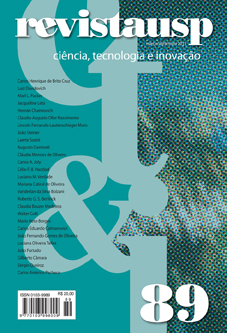Organismos transgênicos no Brasil: regular ou desregular?
DOI:
https://doi.org/10.11606/issn.2316-9036.v0i89p148-173Keywords:
transgenic plants, risk analyses, health, environmentAbstract
The risk analysis of GMOs or transgenic plants follows international protocols concer-ning with possible damages (adverse effects), the form in which damages occur (risks), the significant risks deserving a thorough analysis, and which way the identified risk is to be observed and measured (assessment). Just like what has happened in Brazil, risk analyses conducted in other countries in the last fifteen years have never found any market-released products with adverse effects to human or animal health or to the environment. The excessive regulation favors big companies, which have resources and time to meet all regulatory demands. On the other hand, small-sized companies or state companies such as Embrapa do not have enough budgeting to comply with the overburdening regulation. Thus, taking into account the experience of other countries and also its own experience, Brazil should address this debate with more rationality, and start de-regulating what is over-regulated. Transgenic plants are harmless, and also favorable to the economy and to the environment. It has been proved that they reduce water use as they demand less insecticide, and also the use of diesel oil, thus reducing CO2 emission into the atmosphere.Downloads
References
ANDRADE, P. P.; NEPOMUCENO, A. L.; VIEIRA, M. L. C.; BARROSO, P. A. V.; TAPIAS, B. A.; COLLI, W. & PAIVA, E. Milho Geneticamente Modificado: Bases Científicas das Normas de Coexistência entre Cultivares. 1a ed. Editora do Ministério de Ciência e Tecnologia, 2009.
BROOKES, G. & BARFOOT, P. “Global Impact of Biotech Crops: Socio-Economic and Environmental Effects in the First Ten Years of Commercial Use”, in AgBioForum 9, 2006, pp. 139-51.
CÉLERES AMBIENTAL. The Social Environmental Benefits from Crop Biotechnology in Brazil: 1996-2009. Uberlândia, 2010 (www.celeresambiental.com.br).
DELANEY, B.; ASTWOOD, J. D.; CUNNY, H.; CONN, R. E.; HEROUET-GUICHENEY, C.; MACINTOSH, S.; MEYER, L. S.; PRIVALLE, L.; GAO, Y.; MATTSSON, J. & LEVINE, M. “Evaluation of Protein Safety in the Context of Agricultural Biotechnology”, in Food Chem. Toxicol. 46, 2008, S71-S97.
FEDOROFF, N. & BROWN, N. M. Mendel in the Kitchen: A Scientist’s View of Genetically Modified Foods. Joseph Henry Press, Washington, DC., 2004.
GOODMAN, R. E.; VIETHS, S.; SAMPSON, H. A.; HILL, D.; EBISAWA, M.; TAYLOR, S. & VAN REE, R. “Allergenicity Assessment of Genetically Modified Crops – What Makes Sense?”, in Nature Biotech. 26, 2008, pp. 73-81.
JAMES, C. Global Status of Commercialized Biotech/GM Crops: 2009. ISAAA Brief nº 41, ISAAA, Ithaca, NY.
KEESE, P. “Risks from GMOs due to Horizontal Gene Transfer. Environ”, in Biosafety Res. 7, 2008, pp. 123-49.
KEESE, P. Office of the Gene Technology Regulator. Risk Analysis Framework. http://www.ogtr.gov.au/internet/ogtr/publishing.nsf/Content/ riskassessments-1. 2009.
MALARKEY, T. “Human Health Concerns with GM Crops”, in Mutation Res. 544, 2003, pp. 217-21.
POTRYKUS, I. & AMMANN, K. “Transgenic Plants for Food Security in the Context of Development”, in New Biotechnology 27, 2010, pp. 445-717.
RAYBOULD, A. “Problem Formulation and Hypothesis Testing for Environmental Risk Assessments of Genetically Modified Crops”, in Environ. Biosafety Res. 5, 2006, pp. 119-26.
ROMEIS, J.; BARTSCH, D.; BIGLER, F.; CANDOLFI, M. P.; GIELKENS, M. M. C.; HARTLEY, S. E.; HELLMICH, R. L.; HUESING, J. E.; JEPSON, P. C.; LAYTON, R.; QUEMADA, H.; RAYBOULD, A.; ROSE, R. I.; SCHIEMANN, J.; SEARS, M. K.; SHELTON, A. M.; SEET, J.; VAITUZIS, Z. & WOLT, J. D. “Assessment of Risk of Insect-resistant Transgenic Crops to Nontarget Arthropods”, in Nature Biotechnology 26, 2008, pp. 203-8.
VAN DEN BELT, H. “Debating the Precautionary Principle: ‘Guilty until Proven Innocent’ or ‘Innocent until Proven Guilty’”?, in Plant Physiol. 132, 2003, pp. 1.122-6.
WATSON, J. D.; BERRY, Andrew. DNA: o Segredo da Vida. São Paulo, Companhia das Letras, 2007.
Downloads
Published
Issue
Section
License
Copyright (c) 2023 Revista USP

This work is licensed under a Creative Commons Attribution-NonCommercial-ShareAlike 4.0 International License.
|
Pertence à revista. Uma vez publicado o artigo, os direitos passam a ser da revista, sendo proibida a reprodução e a inclusão de trechos sem a permissão do editor. |


